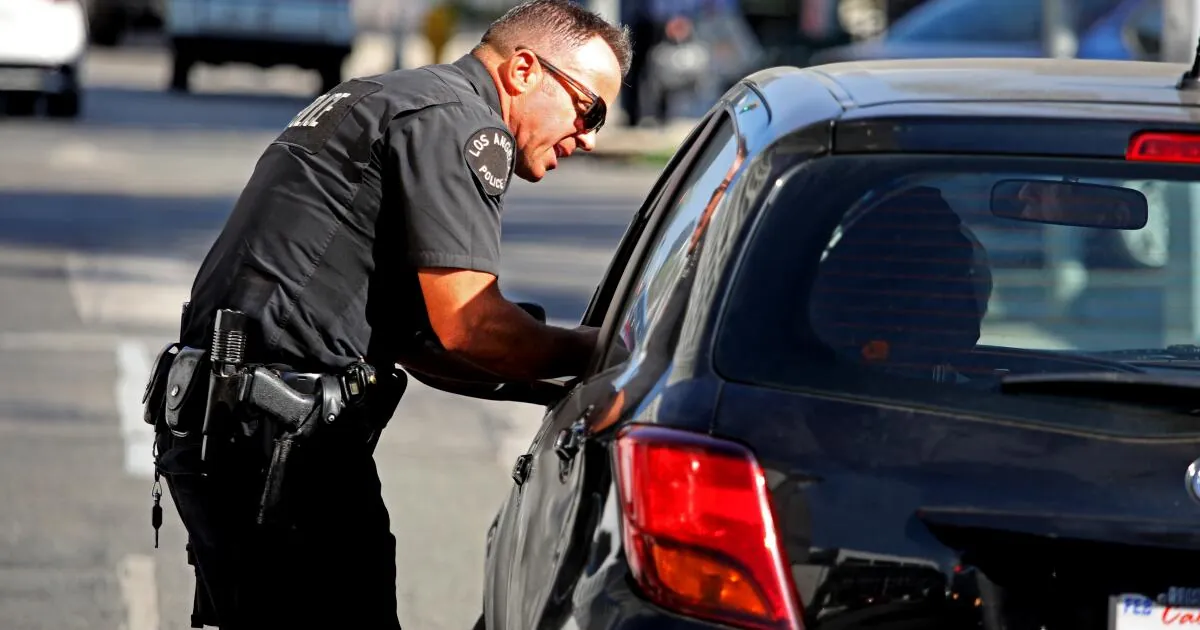In today’s digital age, our smartphones contain a wealth of personal information, from private conversations and photos to financial records and browsing history. Understanding your rights when it comes to police searches of your phone, especially during routine traffic stops, is crucial for protecting your privacy.
This article explores the legal framework regarding cell phone searches by Texas police during traffic stops. We’ll delve into the Fourth Amendment protections, landmark court cases, and practical advice for safeguarding your digital information.
The Fourth Amendment and Cell Phone Searches
The Fourth Amendment to the United States Constitution guarantees:
“The right of the people to be secure in their persons, houses, papers, and effects, against unreasonable searches and seizures, shall not be violated, and no Warrants shall issue, but upon probable cause, supported by Oath or affirmation, and particularly describing the place to be searched, and the persons or things to be seized.”
Historically, the Fourth Amendment has been interpreted to protect individuals from unreasonable government intrusion into their privacy. However, the application of this amendment to cell phones has been a complex legal issue due to the vast amount of personal data they store.
Riley v. California: A Watershed Moment
In 2014, the United States Supreme Court delivered a landmark decision in the case of Riley v. California. This case significantly impacted cell phone search laws. The Court unanimously held that police officers generally need a warrant before searching a cell phone seized incident to an arrest.
The Court recognized the immense storage capacity of modern smartphones and the sensitive information they hold. The decision emphasized that cell phones are fundamentally different from other physical objects that police might seize during an arrest.
Can Texas Police Search My Phone During a Traffic Stop?
In light of Riley v. California, Texas police officers generally cannot search your cell phone during a traffic stop without a warrant. The rationale behind this is that cell phones contain a vast trove of private information, and a warrantless search would constitute an unreasonable intrusion into your privacy.
Exceptions to the Warrant Requirement
There are limited exceptions to the warrant requirement for cell phone searches:
- Consent: If you voluntarily consent to let the police search your phone, they can do so without obtaining a warrant. However, you are under no obligation to give consent, and you can withdraw it at any time.
- Exigent Circumstances: In rare cases where there is an immediate threat to public safety or the potential for evidence to be destroyed, police may be able to search your phone without a warrant. For example, if they reasonably believe evidence of a bomb threat is on your phone.
- Search Incident to Arrest: If you are placed under arrest for a reason unrelated to your phone, police may be able to conduct a limited search of your phone for evidence related to the crime for which you were arrested.
Protecting Your Cell Phone Rights
Here’s what you can do to protect your rights if you are stopped by the police:
- What to Do If Police Ask to Search Your Phone
- Politely Decline: You have the right to refuse a search of your phone. Calmly and respectfully tell the officer, “I do not consent to a search of my phone.”
- Ask for a Warrant: If the officer insists on searching your phone, ask to see a warrant. If they cannot produce one, continue to refuse the search.
- Remain Silent: You have the right to remain silent. Avoid answering questions that could incriminate you or be used as justification for a search.
- Understanding Consent Searches
- Voluntary Consent: Consent to a search must be given freely and voluntarily. Do not feel pressured or intimidated into agreeing to a search.
- Withdrawal of Consent: You can withdraw your consent to a search at any time, even if the search has already begun.
Additional Considerations
- Probable Cause and Warrants: If a police officer has probable cause to believe that your phone contains evidence of a crime, they can apply to a judge for a search warrant. The warrant must specifically describe the information to be searched for and the area of the phone to be searched.
- Searches After Arrest: Even after being arrested, the police generally need a warrant to search your phone’s contents. There may be some limited circumstances where a search could be conducted without a warrant, such as if there’s reason to believe your safety or someone else’s is at risk.
Conclusion
Understanding your rights when it comes to police searches of your cell phone is essential in an increasingly digital world. As a general rule, Texas police officers cannot search your phone during a traffic stop without a warrant. Remember, you have the right to decline a search, ask for a warrant, and remain silent. By staying informed and exercising your rights, you can help protect your digital privacy.
Sources
- Fourth Amendment to the U.S. Constitution: https://constitution.congress.gov/constitution/amendment-4/
- Riley v. California (2014): [invalid URL removed]
- Texas Constitution, Article I, Section 9: https://statutes.capitol.texas.gov/Docs/CN/htm/CN.1.htm
Disclaimer: This article provides general legal information and should not be construed as legal advice. If you have specific questions about your rights or a particular situation, it’s always best to consult with a qualified attorney.

